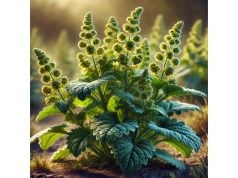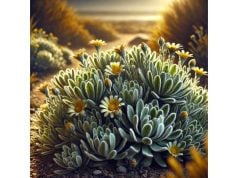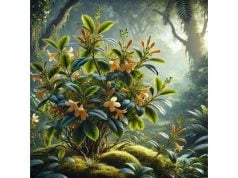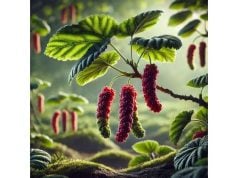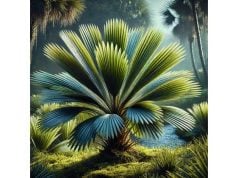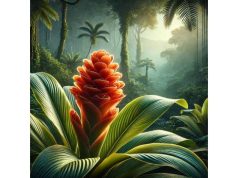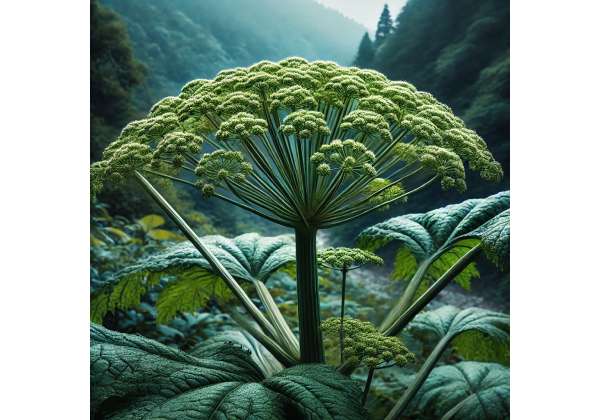
Dong Quai (Angelica sinensis) is one of the best-known herbs in traditional East Asian medicine, often called a “women’s herb” because of its long history in menstrual and menopause-related care. The root is the medicinal part, and modern research has identified several active groups within it, including ferulic acid, ligustilide-rich volatile oils, and polysaccharides. These compounds help explain why dong quai is studied for circulation support, inflammation control, and symptom relief.
At the same time, dong quai is frequently overhyped online. The most useful way to approach it is as a traditional herb with promising chemistry and selective clinical evidence—not as a universal hormone remedy. Product quality, dose, and the reason you are taking it all matter. Safety matters too, especially if you take blood thinners, are pregnant, or are using it alongside other hormone-related therapies.
Key Insights
- Dong quai is most commonly used for menstrual discomfort and menopause-related symptoms, but human evidence is mixed and product-dependent.
- Its main studied compounds include ferulic acid, ligustilide-rich volatile oils, and polysaccharides with antioxidant and anti-inflammatory effects.
- Clinical and supplement doses vary widely, and published studies have used roughly 75 mg to 1,000 mg per day in different contexts, so there is no single standard dose.
- Dong quai may increase bleeding risk and can cause photosensitivity in some people.
- People who are pregnant, breastfeeding, or taking warfarin or other blood thinners should avoid dong quai unless a clinician specifically recommends it.
Table of Contents
- What Dong Quai Is and Why It Is Used
- Key Ingredients and Medicinal Properties
- Dong Quai Benefits and Realistic Outcomes
- How to Use Dong Quai
- How Much Dong Quai Per Day
- Side Effects Interactions and Who Should Avoid It
- What the Evidence Actually Says
What Dong Quai Is and Why It Is Used
Dong quai is the common English name for Angelica sinensis, a plant in the carrot family. The dried root is the part used in herbal medicine. In traditional East Asian practice, it is often included in formulas rather than used alone, especially for patterns linked to menstrual discomfort, irregular cycles, fatigue, and recovery after childbirth. That long traditional use is one reason it remains popular today, but tradition and modern clinical proof are not the same thing.
A practical point many people miss is that “dong quai” is not one uniform product. It can appear as:
- A single-herb capsule or tablet
- A liquid extract or tincture
- A powdered root
- A tea or decoction ingredient
- A multi-herb formula aimed at menopause, PMS, or circulation
Those formats can behave differently because they do not deliver the same compounds in the same amounts. Volatile oils are handled differently in tea versus capsules, and concentrated extracts may emphasize some constituents more than others.
Dong quai also sits at the center of a naming problem. Some products use the botanical name, while others use only the common name. For safety and quality, the Latin name matters. “Angelica” herbs are a broader group, and not every product sold as angelica has the same chemistry or traditional use.
People usually turn to dong quai for one of four reasons:
- Menstrual symptoms such as cramping or cycle discomfort
- Menopause symptoms, especially hot flashes
- General “blood” or circulation support in traditional medicine language
- A broader herbal wellness routine focused on inflammation, recovery, or aging support
That list helps explain why online descriptions are often confusing. Some claims are based on traditional theory. Others come from lab or animal research. A smaller set comes from human studies, and those results are mixed.
The most balanced view is this: dong quai is a historically important medicinal root with biologically active compounds and plausible mechanisms, but the likely benefit depends on the condition, the product type, and whether it is being used alone or as part of a formula. If you approach it as a targeted herb instead of a catch-all remedy, you are more likely to use it safely and set realistic expectations.
Key Ingredients and Medicinal Properties
Dong quai’s reputation comes from its chemistry. The root contains several major groups of compounds, and each contributes to a different part of its medicinal profile. The three most discussed categories are volatile oils, organic acids, and polysaccharides.
The volatile oil fraction includes compounds such as ligustilide and related phthalide-type molecules. These are often highlighted in research on blood flow, smooth muscle effects, nerve protection, and vascular function. They are also one reason different preparations may not act the same way, because volatile components can be reduced during processing or storage if the product is poorly made.
Organic acids, especially ferulic acid, are another important part of the dong quai profile. Ferulic acid is widely studied for antioxidant activity and has been examined in vascular and tissue-protective models. In practical terms, this is one reason dong quai is often described as a circulation-support herb, although that does not automatically mean it treats cardiovascular disease in humans.
The polysaccharide fraction has become a major focus of recent research. These long-chain carbohydrate compounds are associated with:
- Antioxidant activity
- Anti-inflammatory signaling
- Immune modulation
- Blood-forming support in preclinical models
- Tissue protection in liver, vascular, and other systems
This is where many of dong quai’s modern “medicinal properties” are discussed. Still, most of these findings come from laboratory and animal work. They are useful for understanding mechanism, but they do not guarantee the same magnitude of effect in humans.
Another important property is that dong quai can affect blood-related pathways. That may sound beneficial in traditional and modern language, but it is also why safety screening matters. Some constituents may increase bleeding risk, especially when combined with anticoagulant or antiplatelet drugs. Dong quai also contains compounds associated with photosensitivity risk in some users.
From a product-quality perspective, the medicinal effect of dong quai depends on more than the herb name on the label. It depends on:
- Root quality and species identity
- Extraction method
- Standardization (if any)
- Storage conditions
- Whether the product is a single herb or a blend
This explains why one person may report meaningful symptom relief while another notices nothing. Two “dong quai” products may not be chemically comparable.
The key insight is that dong quai is not a simple herb with one active ingredient. It is a multi-compound botanical with several plausible mechanisms. That makes it promising, but it also makes careful use more important. The best results usually come from matching the right form and dose to a specific goal, while keeping safety risks in view.
Dong Quai Benefits and Realistic Outcomes
When people search for dong quai benefits, they usually want a clear answer: does it actually help? The honest answer is that dong quai has a strong traditional use profile, a credible pharmacology profile, and a mixed clinical evidence profile. Some outcomes are plausible and may be helpful, but the effect is not reliable enough to treat it like a proven drug for every use.
The most common reason people use dong quai is women’s health support. In traditional practice, it is widely used for menstrual discomfort, irregular cycles, and recovery after childbirth. Modern interest focuses on:
- Menstrual cramps and cycle discomfort
- Menopause symptoms such as hot flashes
- General comfort and circulation during the menstrual cycle
A realistic expectation is modest support, not guaranteed relief. Some people feel better when dong quai is part of a broader plan that includes sleep, iron status evaluation, hydration, and symptom tracking. Others do not notice a clear change, especially if the underlying problem is not hormonal or is driven by conditions such as fibroids, endometriosis, thyroid disease, or medication effects.
Dong quai is also marketed for circulation and cardiovascular support. This comes mainly from compound-level and preclinical research, especially around ferulic acid, volatile oils, and polysaccharides. In that research space, the herb and its constituents have shown antioxidant, anti-inflammatory, and vascular-protective activity. Those findings are meaningful, but they are not the same as strong clinical evidence that dong quai prevents heart attack, stroke, or vascular disease in humans.
Some users also take dong quai for “blood building” or fatigue. Traditional systems often place it in blood-tonifying formulas. Modern research on Angelica sinensis polysaccharides includes work on hematopoiesis and immune signaling, which helps explain the traditional language. Still, fatigue is a broad symptom, and self-treating with dong quai can delay proper workup for anemia, heavy menstrual bleeding, low B12, sleep apnea, or other causes.
It is also worth noting what dong quai is not. It is not a proven replacement for hormone therapy, and it should not be used to self-manage severe menopausal symptoms without discussing options with a clinician. It is also not a fast-acting pain medicine.
The most practical benefit profile looks like this:
- Best fit: mild to moderate symptom support as part of a broader plan
- Less reliable: stand-alone treatment for significant hot flashes or severe pain
- Poor fit: emergency symptoms, heavy bleeding, unexplained pelvic pain, or disease treatment
If you use dong quai with realistic expectations, it can be a thoughtful option. If you expect it to solve every hormone or circulation problem on its own, it will likely disappoint you.
How to Use Dong Quai
The right way to use dong quai depends on your goal, the product form, and your health risks. Many people focus on the herb itself and ignore the form, but form matters because it changes what you are actually taking.
Common forms of dong quai include:
- Capsules and tablets (powdered root or extract)
- Liquid extracts and tinctures
- Dried root slices for tea or decoction
- Multi-herb formulas for cycle or menopause support
For most people, capsules or tablets are the easiest form to use consistently because dosing is clearer than tea. Teas and decoctions can be useful, but the strength can vary a lot depending on how much root is used and how long it is simmered. That variability makes self-experimenting harder, especially if you are trying to judge whether the herb is helping.
If you choose a supplement, prioritize product quality:
- Check that the label lists Angelica sinensis (not just “angelica”).
- Choose a product with clear serving size information.
- Look for third-party quality testing when possible.
- Avoid “proprietary blends” that hide ingredient amounts.
- Start with one product at a time so you can track effects.
Dong quai is often used in combination formulas, and that is a major reason online reviews are confusing. Someone may say dong quai “worked,” but the formula also contained black cohosh, peony, ginger, or other herbs. If you want to know how your body responds specifically to dong quai, a single-herb product is easier to evaluate.
Timing also matters. Many people do better taking dong quai with food, especially if they are prone to stomach upset. If your goal is menstrual support, some clinicians and herbal practitioners recommend using it consistently rather than only on the worst day of symptoms, but the timing plan should match the product and your cycle pattern.
A simple tracking method can make use much safer and more useful. Keep notes for 4 to 8 weeks on:
- Product name and dose
- Time of day taken
- Any stomach upset, headache, rash, or light sensitivity
- Menstrual symptoms or hot flash frequency
- Other medicines or supplements used the same day
That kind of record helps you spot whether benefits are real or just random variation.
Do not use dong quai casually if you take blood thinners, have a bleeding disorder, or are preparing for surgery. In those situations, “natural” does not mean low risk. A quick medication review before starting is a much better choice than guessing.
How Much Dong Quai Per Day
There is no universally accepted, evidence-based standard dose of dong quai for all uses. That is the most important dosing fact to understand. Different studies, traditional practices, and commercial products use very different amounts, and the best dose has not been settled by large, high-quality clinical trials.
Published clinical literature has reported a broad range of doses. In one placebo-controlled trial, participants used a 500 mg dong quai tablet daily for 3 months. That same paper also noted that prior gynecologic studies had used varying doses from about 75 mg to 1 g. This wide range is a good reminder that dose depends on the product, the condition being studied, and whether dong quai is used alone or in a combination.
A practical way to think about dosing is by category:
- Low end: around 75 mg to 250 mg per day in some study contexts or extracts
- Mid range: around 500 mg per day in a published trial setting
- Higher end: up to around 1 g per day in some gynecologic study reports
- Traditional formula use: often different from capsule dosing, because decoctions and multi-herb formulas are not equivalent to a single standardized extract
That does not mean you should choose a dose within that range on your own. It means the published landscape is inconsistent. For safe use, start with the labeled serving of a reputable product and review it with a clinician or pharmacist if you have any medical conditions.
Helpful dosing principles:
- Use the product label as your starting point, not a random social media recommendation.
- Start low and assess tolerance for 1 to 2 weeks.
- Increase only if needed and if no side effects appear.
- Reassess after 4 to 8 weeks instead of continuing indefinitely.
- Stop and seek advice if you notice unusual bruising, bleeding, rash, or severe stomach symptoms.
Timing and duration matter too. Many users take dong quai once daily, often with food. Some split the daily amount if the product allows it. If you are using it for cyclic symptoms, keeping a symptom log is more useful than changing the dose every few days.
There is also a quality issue hidden inside dosing: a “500 mg” capsule does not guarantee the same active compound content across brands. A lower-dose product from a well-made extract may feel stronger than a higher-dose powder product. That is one reason product consistency matters just as much as the number on the label.
In short, think of dong quai dosing as individualized. Use a known product, start conservatively, track your response, and avoid self-escalation—especially if you also take prescription medications.
Side Effects Interactions and Who Should Avoid It
Dong quai is often described as “usually well tolerated,” but that phrase can be misleading if it makes people skip safety checks. The herb can cause side effects, and it has clinically important interaction risks for some users.
The most commonly reported side effects include:
- Stomach upset, bloating, or diarrhea
- Reduced appetite in some users
- Photosensitivity (increased sensitivity to sunlight)
- Occasional headache or general intolerance
Photosensitivity is especially important because it is easy to miss. If you start dong quai and notice you burn more easily or develop a sun-related rash, stop using it and reassess. This matters even more if you already take medications that increase sun sensitivity.
The biggest interaction concern is bleeding risk. Dong quai may have additive effects with:
- Warfarin
- Antiplatelet medicines
- Some anticoagulants
- Other herbs or supplements that affect clotting
This does not mean every user will have a bleeding problem, but it does mean the combination should not be taken casually. If you are on a blood thinner, the safest approach is to avoid dong quai unless your prescribing clinician specifically approves it.
Pregnancy and breastfeeding are also major safety categories. Dong quai is generally avoided during pregnancy because of safety concerns, including miscarriage risk, and it is also best avoided during breastfeeding. This is one of the clearest “do not self-prescribe” situations.
People with hormone-sensitive conditions should also be cautious. Dong quai is sometimes marketed as a natural hormone balancer, but that language is vague and not a safety guarantee. If you have a history of hormone-sensitive breast, ovarian, uterine, or prostate disease, discuss it with your oncology or specialty team before using the herb.
Other groups who should avoid or seek medical guidance first:
- People with unexplained heavy bleeding
- Anyone scheduled for surgery or dental procedures
- People with known bleeding disorders
- People taking multiple supplements with overlapping effects
- Those using complex medication regimens that depend on stable blood levels
One more practical point: multi-herb menopause and cycle products can make side effects harder to interpret. If you develop a problem while using a blend, you may not know whether dong quai or another ingredient caused it.
Dong quai can be a reasonable herb for some adults, but it is not a low-stakes supplement for everyone. A quick medication and medical history check before starting it is a smart step, not an overreaction.
What the Evidence Actually Says
Dong quai has a stronger evidence base in traditional use and laboratory research than in modern human clinical trials. That does not make it ineffective, but it does change how confidently we can talk about benefits.
The research picture breaks down into three layers.
First, there is extensive traditional use. Dong quai has been used for centuries, especially in East Asian medicine, with a strong focus on menstruation, circulation, and women’s health patterns. This history matters because it points researchers toward plausible uses and preparations.
Second, there is modern mechanistic and preclinical evidence. Recent reviews of Angelica sinensis compounds and polysaccharides describe a broad range of biological effects, including anti-inflammatory, antioxidant, immune-modulating, and tissue-protective activity. There is also active research on vascular and neuroprotective pathways. This is the most convincing part of the scientific story for dong quai right now: the herb clearly contains compounds with real biological activity.
Third, there is the human trial evidence, and this is where caution is needed. Human studies are fewer, often small, and not always comparable because:
- Doses vary widely
- Products differ
- Some trials use combination formulas
- Outcomes are measured differently
- Trial quality is uneven
In one placebo-controlled trial using 500 mg daily, dong quai did not meaningfully improve hot flashes compared with placebo. That result does not prove the herb never helps anyone, but it does challenge the idea that dong quai is a reliable stand-alone treatment for vasomotor symptoms.
This is the core evidence takeaway:
- Strongest support: pharmacology and traditional use
- Moderate support: symptom support in selected contexts, especially as part of a broader plan
- Weak or inconsistent support: stand-alone treatment claims for major menopause outcomes
- Ongoing need: better clinical trials with standardized products and clear dosing
So how should this guide real-world decisions?
Use dong quai when the goal is reasonable and the safety profile fits. It may be worth trying for mild symptom support, especially with professional guidance. Do not use it as a substitute for evaluating heavy bleeding, severe pelvic pain, persistent hot flashes, or complex hormone-related symptoms.
The most evidence-based mindset is not “dong quai works” or “dong quai does not work.” It is: dong quai is a biologically active traditional herb with promising compounds, limited standardized clinical evidence, and a safety profile that requires screening. That middle ground is less dramatic than marketing claims, but it is much more useful.
References
- Pharmacological action of Angelica sinensis polysaccharides: a review – PMC 2025 (Systematic Review)
- Research Progress in Pharmacological Effects and Mechanisms of Angelica sinensis against Cardiovascular and Cerebrovascular Diseases – PMC 2024 (Review)
- Dong Quai – Drugs and Lactation Database (LactMed®) – NCBI Bookshelf 2021 (Monograph)
- Dong Quai | Memorial Sloan Kettering Cancer Center 2024 (Clinical Monograph)
- Dong Quai (angelica sinensis) in the treatment of hot flashes for men on androgen deprivation therapy: results of a randomized double-blind placebo controlled trial – PMC 2010 (RCT)
Disclaimer
This article is for educational purposes only and does not replace medical advice, diagnosis, or treatment. Herbal supplements can interact with medicines and may not be safe for everyone. Dong quai is not appropriate for pregnancy, breastfeeding, or people using blood thinners unless a qualified clinician specifically advises it. If you have heavy bleeding, severe menstrual pain, persistent hot flashes, or a hormone-sensitive condition, speak with a licensed healthcare professional before using dong quai.
If you found this guide helpful, please share it on Facebook, X, or your preferred platform so others can make safer, better-informed decisions about herbal supplements.

